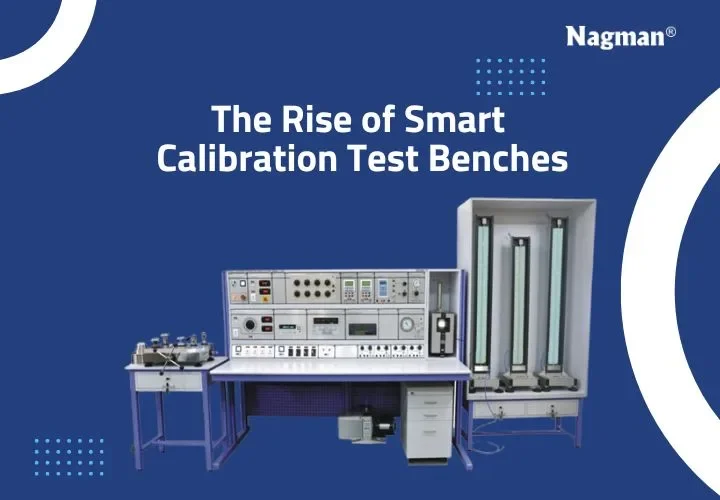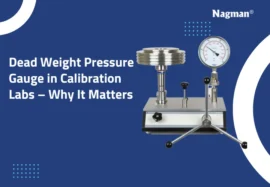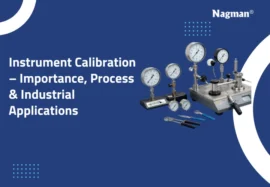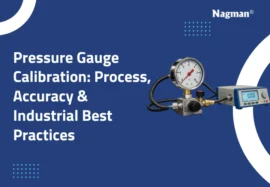With technological development, the requirement of precision, accuracy and efficiency in industrial testing and measurement has also increased. The calibration test bench is one of the innovations that brought this change. Whether it is a manufacturing unit, a calibration laboratory, or a research facility, there has never been a greater need for instrument calibration. This blog discusses the emergence of these advanced systems, their characteristics and advantages, and how they are shaping the future of measurement and instrumentation.
Introduction: Evolution of Calibration Systems
Calibration has undergone a lengthy process of manual readjustments and updates to analogue equipment. Previously, technicians performed tests and calibrations using various equipment, which was time-consuming and prone to errors. Today, we observe the emergence of calibration test benches, which have modular, automated systems combining hardware, software, and multifunctionality into one smart system.
With growing industrial complexity, accuracy requirements, and traceability demands have grown, and calibration systems have become more integrated and intelligent. The smart calibration test benches represent the next stage of this evolution, ensuring the uniformity of the results.
Understanding Smart Calibration Test Benches
A test bench is a module where instruments are tested and calibrated. These benches measure a large number of electrical signals and parameters, including voltage, current, resistance, frequency, and temperature.
These tools combine data logging, automatic error detection, real-time monitoring, and links to central databases. This increases the reliability and reproducibility of all the calibrations that are done.
Key Features of the Best Smart Benches
Some characteristics that make the calibration test benches different are:
- Multifunction integrated calibrator: A multifunction calibrator reduces the use of multiple tools for different functions.
- Modular design: It can be customised as per the user’s needs.
- Automation controls and touchscreen interface: Simplify controls and accelerate calibration processes.
- Data traceability and logging: Calibration records, which are automatically saved and can be accessed either during audits or reviews, make it convenient.
- Measurement accuracy: Its precision helps in conforming to national and international standards.
- Test software and IT systems compatibility: These are used to ensure they integrate smoothly into the existing setup.
Why Calibration Test Benches Are Essential for Modern Industries
Modern industries rely on precision, accuracy, and efficiency in their testing and measurement processes. Calibration test benches play a vital role in achieving these goals. These smart systems are not just tools—they are complete solutions that combine hardware, software, and automation to streamline calibration tasks.
By using calibration test benches, industries and laboratories can:
Save Time and Labour – Automated processes reduce manual involvement, making calibrations faster and more efficient.
Ensure High Accuracy – Precision measurement minimizes errors, ensuring instruments meet national and international standards.
Maintain Detailed Records – Digital data logging allows easy documentation, audit trails, and compliance with regulatory frameworks like ISO/IEC 17025.
Enhance Versatility – One multi-functional bench can replace multiple individual calibrators, reducing clutter and costs.
Support Scalability – These benches can be tailored for small labs or large manufacturing units, making them flexible for diverse industrial needs.
Investing in calibration test benches not only improves measurement reliability but also strengthens overall quality assurance systems. With smart, automated, and connected capabilities, these benches are shaping the future of industrial testing and ensuring safer, faster, and more accurate results.
Benefits for Industries and Calibration Labs
Implementation of smart test benches has many benefits for industries:
- Efficiency: Automation eliminates human involvement, thus saving time and labour costs.
- Accuracy: Increased precision in digital instrumentation measurement is of high quality.
- Documentation: Documents are automatically generated conforming to ISO/IEC 17025, among other regulatory frameworks.
- Versatility: Fewer calibrators are needed since multiple individual calibrators can be substituted with one multi-purpose calibrator, and less bench clutter.
- Scalability: Smart benches can be adjusted to suit the needs and can be used in both small laboratories and big manufacturing units.
Integration with Calibration Management Software
Integration with calibration software helps provide automatic scheduling options, record-keeping of previous tests, and an option to create alerts for recalibration requirements. Technicians are able to monitor instrument status, create compliance reports and keep a digital audit trail, all without manually filling out paperwork.
The software also allows remote diagnostics and storing data in the cloud in most facilities, which makes working with multiple sites easier.
Customisation Options for Diverse Applications
Each industry has its requirements. Manufacturers thus provide customisable test bench configuration options. They can be customised to include drawers, power supplies, environmental sensors, pressure modules, or high-voltage sources, depending on what other instruments are also needed for that test.
Other benches are even mobile so that the technicians can perform on-site calibration even in harsh conditions.
Global Adoption and Industry Impact
The use of this technology is no longer restricted to developed countries. India, Southeast Asia and Africa have fast-emerging calibration labs that attain international quality and safety standards.
Both the government and private sectors are investing in smart benches to guarantee the quality of the products, safety in operation, and competitiveness in the international market.
Conclusion: Calibration Technology of the Future
As industries become more digital and automated, the demand for smart and reliable testing solutions is increasing. A calibration test bench is a key tool in modern quality control, offering accuracy, speed, and easy record-keeping.
These tools help ensure products meet high standards, reduce errors, and simplify testing processes. The future of calibration is smart, precise, and connected, making industrial testing faster, safer, and more efficient than ever before.






